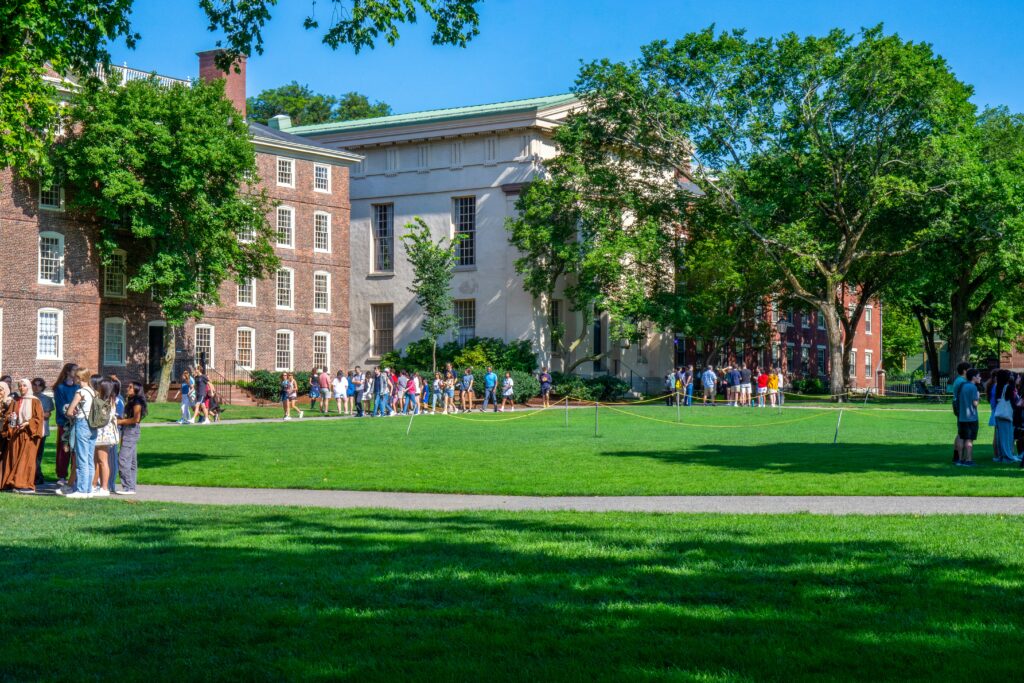We get a lot of questions about summer programs, some technical, some highly specific. One we get asked quite a lot however, is this: are free summer programs inherently better?
It’s easy to see where this perception comes from. Many top summer programs are free, while many which are useless, or which serve as glorified camps, are quite expensive. However, this is not enough to give a unified answer. Today, we’ll be looking for an answer to this question. We’ll look at when free programs are better, and when summer programs are worth paying for; then we’ll explore some of the best free summer programs for high school students. Let’s get started!
Free Programs are Often Better
Generally, free programs are free for a few reasons. The first, and most common, is accessibility. The cost to participate in a summer program is a huge barrier for many students, as families are unable to shell out hundreds or thousands of dollars to pay for great summer programs. Thus, in a search for greater accessibility, some programs secure other sources of funding.
This then falls into two subcategories of accessibility:
- Free summer programs which are expressly designed and intended to help underprivileged or resourced students gain important experience ro access.
- Programs which want top students to apply, and which don’t want cost to be a barrier.
Of course, some programs fall into both of these categories, or have multiple motivations for their decision. In general though, you can easily see how an organization with the second motivation would attract top students.
This is much the same reason many top universities are need blind. They want top students in their programs, and don’t want finances to be a barrier to that. They may or may not advantage students with need when making admissions decisions, but at the end of the day merit is what is most important, and that is part of what makes these (both universities and summer programs) so competitive, and so great.
When Summer Programs Are Worth Paying For
This isn’t to say paid programs are all wastes of time however. Sure, some are (more on that below), but many summer programs provide something amazing, and want to be paid for that. Top professors require salaries, housing in campus dorms is expensive, and meals need to be paid for somehow. There are a lot of costs associated with running a summer program, so charging money to attendees is the norm, rather than the exception.
Cost alone is not an indicator of whether a program is good or bad. This is especially true for programs which offer something remarkable. A great example of this is UChicago’s Stones and Bones summer program.
This is a very expensive program, even by the standards of top universities, costing $14,000. This price tag is because it allows students to participate in an active paleontological expedition in Wyoming, and see firsthand how fossils are excavated in the field, and then processed in a laboratory. This is not something high school students normally get to experience, to say the least.
Many other great summer programs have a high cost associated with them, for housing, for instruction, and for the time needed to devote to teaching students something remarkable.
When Summer Programs Aren’t Worth the Cost
Of course, some summer programs are not at all worth what’s being charged for them. It can be very difficult to tell whether a program is or not, as many low quality programs go out of their way to seem better or more prestigious than they are.
Here are our top tips to see whether or not a program is worth what they are charging:
- Determine who is really running a program. Just because a summer program is hosted at a university, doesn’t mean they’re involved. Many summer programs will rent facilities or living spaces at a top college to claim association, even when the school itself isn’t involved with the program in any way.
- See what exactly students will be learning and doing. The best summer programs give students the chance to learn and explore in ways they otherwise can’t. See what skills the program imparts, and what students come away having done.
- Be wary of voluntourism summer programs. We’ve written on this before, but it’s worth being aware of. These programs sound exciting, and can make for a fun vacation, but add little if anything to a student’s college applications.
Not all programs run by universities are excellent, and attending a program run by a top university does not improve your chances of acceptance to that school. While there are many great summer programs that are worth the high cost of attendance, not all summer programs are, and you need to be discerning when deciding how to spend your time and money.
Great Free Summer Programs for High School Students
Here are a handful of example summer programs, which show a small sampling of what is available. Note that many of these are STEM focused programs, but this is not all that is out there.
Run and organized by City of Hope, a hospital network in the Western US, this program is associated with their teaching hospitals. Students join existing biomedical research teams, and spend 10 weeks working with them on their projects, learning lab techniques and research methodology along the way. Students attend workshops and seminars, and can even get their names on the final papers published by the research teams, though this is not guaranteed.
You must be 16 or older to apply, a current high school or undergraduate student, and a US resident. There is no housing provided, but the program does offer a $4,000 stipend to participants. You may apply for the program online; the application opens in January and is due in March.
Coriell Summer Experience for Students
This is a four week summer research program run and administered by the Coriell Institute, open to high school students and undergraduates. Students will be able to choose which program within this they apply to, working in research labs, running diagnostic tests, or helping in the production laboratory. These are all working labs, and students will learn lab techniques and contribute materially to the program’s goals.
Students must be 17 or older to apply to this program, and need to be US residents. There is no lodging provided; students must be able to get to the site in Camden, New Jersey, on their own. Applications must be submitted online, and are due by May 15. Students receive a $1,000 stipend for participating in the program.
Summer Science Research Program
Run and hosted by Rockefeller University, this is a free seven week research experience where students work in teams guided by a research lead. They perform laboratory work, receive training, attend workshops, and take elective classes, all in an area of scientific interest to them. While students may generate research during the program, they may not use this for their own publications or science fair submissions; all the research belongs to Rockefeller University.
32 students are accepted into the program each year. They must be 16 years old, current high school students, and able to commit to the entire seven weeks of the program. The program can offer a travel stipend, but does not offer any housing. Students not local to the program may apply, but will need to arrange their own housing for the duration. Applications must be submitted online, and are due by January 5th.
Final Thoughts
As college applications grow ever more competitive, students look harder and harder for ways to make their applications stand out, and to prove they are what top schools are looking for. A great summer program can add a lot to your college applications, showing admissions officers your passions, your curiosity, and that you’ve learned many practical skills already.
While not all summer programs are created equal, we hope that this guide has given you a good sense of how to find and evaluate summer programs, so you can make sure your needs are being served. Of course, this is a complicated and often stressful process. If you want expert advice, or help applying to any of these summer programs, schedule a free consultation today to learn how we can help you. We have a long experience assisting students in pursuing their passions.








